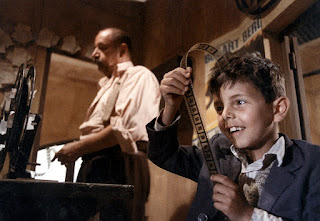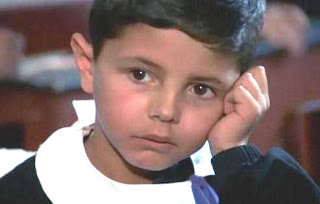Giuseppe Panini - entrepreneur
News vendor who started football sticker craze
Giuseppe Panini, the entrepreneur and businessman who created an international craze for collecting football stickers, was born on this day in 1921 in the village of Pozza in Emilia-Romagna, not far from Modena. Since the stickers’ first appearance in Italy in the 1960s and the first World Cup sticker album in 1970 took the concept into an international marketplace, Panini has grown into a publishing company that in 2017 generated sales in excess of €536 million ($643 million US) in more than 120 countries, employing more than 1000 people worldwide. Giuseppe Panini, who died in 1996, grew immensely wealthy as a result, selling the business in 1989 for a sum said to be around £96 million, the equivalent of £232 million (€266 million; $303 million US) today, after which he spent the remaining years of his life building on an already established reputation for philanthropy. He came from humble working-class origins and left school at the age of 11. His father, Antonio, worked at the military academy in the city of Modena. Life changed for the family, however, when in 1945 they acquired the license to operate the popular newsstand near the cathedral in the centre of the city. Read more…
_____________________________________
The rebuilding of Cervia
Historic town is now a popular seaside resort
Pope Innocent XII, as Head of the Papal States, signed a document ordering the rebuilding of the town of Cervia in the Emilia-Romagna region, on this day in 1697. It was the second time in its history that Cervia had been moved and rebuilt and therefore it has become known as ‘the town of three sites’. Present day Cervia, in the province of Ravenna, is a popular seaside resort with a 9km (5.5 miles) stretch of sandy beaches along the Adriatic coast, about 30km (19 miles) north of Rimini. The town was originally known as Ficocle and was probably of Greek origin. It lay near the coast halfway between what is often referred to as New Cervia and the city of Ravenna. However, the town of Ficocle was completely destroyed in 709 as punishment for being an ally of Ravenna and therefore against Byzantium. It was later rebuilt in a safer location. Cervia became a strong city with three protected entrances, a Prior’s Palace, seven churches and a fortress. It was during this period that the name of the city was changed from Ficocle to Cervia. There is a legend that the Bishop of Lodi was walking in the pine forest surrounding the town one day and a deer (cervo), recognising him as a representative of God, knelt before him. Read more…
_____________________________________
Alessandro Del Piero – World Cup winner
Former striker is all-time record goalscorer for Juventus
The retired footballer Alessandro Del Piero, who won the World Cup with Italy in 2006 and holds the club records for most goals (290) and most appearances (705) for Juventus, was born on this day in 1974 in Conegliano in the Veneto. Regarded as one of Italy’s greatest players, his overall goals tally of 346 in Italian football in all competitions has been bettered only once in history, by Silvio Piola, who was a member of Italy’s winning team in the 1938 World Cup and who scored 390 goals in his career. Del Piero also finished his career having scored at least one goal in every competition in which he took part. Del Piero was a member of six Serie A title-winning Juventus teams between 1995 and 2012 and would have had eight winner’s medals had the club not been stripped of the 2005 and 2006 titles due to the so-called Calciopoli corruption scandal. He also won a Champions League medal in 1996 after Marcello Lippi’s team beat Ajax on penalties to lift the trophy in Rome. Del Piero played in three World Cups but was never able to reproduce his club form more than fleetingly in any of them. He started only one match in the 2006 triumph of the Azzurri in Germany. Read more…
______________________________________
Piero Cappuccilli - operatic baritone
Singer highly respected for interpretation of Verdi roles
Piero Cappuccilli, regarded during a 41-year opera career as one of the finest Italian baritones of the late 20th century, was born on this day in 1926 in Trieste, in the far northeast corner of the peninsula. Although not exclusively, Cappuccilli’s focus was predominantly the work of Italian composers, in particular Giuseppe Verdi, in whose operas he sang 17 major roles. He sang at many of the world’s great opera houses, travelling to South America and the United States, where he made his debut at the Metropolitan Opera in New York as Giorgio Germont in Verdi’s La traviata in 1960 and had a particular association with the Lyric Opera in Chicago, where he made his first appearance in 1969 as Sir Richard Forth in Bellini's I puritani and returned many times before his farewell performances there in 1986. Nonetheless, he spent most of his time in Europe. He made his debut at Milan’s Teatro alla Scala in 1964 as Enrico in Donizetti’s Lucia di Lammermoor; at the Royal Opera House in Covent Garden as Germont in 1967; and at the Opéra de Paris in 1978, singing Amonasro in Verdi’s Aida. Read more…
_____________________________________
Enrico De Nicola - politician
Italy’s ‘reluctant’ first president
The man who was to become the first president of the Republic of Italy was born on this day in Naples in 1877. Enrico De Nicola studied law at Naples University and went on to become one of the most esteemed criminal lawyers in Italy. He also worked as a journalist writing about legal issues. He later joined the Italian liberal party and was elected to the Camera dei Deputati (Chamber of Deputies) in 1909. He held minor government posts until the advent of Fascism when he retired from public life to concentrate on his legal career. De Nicola took an interest in politics again after Mussolini’s fall from power in 1943. At first King Victor Emmanuel III tried to extricate the monarchy from its association with the Fascists and his son Umberto became Lieutenant General of the Realm and took over most of the functions of the Sovereign. Victor Emmanuel later abdicated and his son became King Umberto II. But after a constitutional referendum was held in Italy, the country became a republic in 1946. Umberto went into exile and Enrico De Nicola was elected head of state on 28 June 1946 with 80 per cent of the votes. He is remembered by his colleagues as a modest man who was unsure at the time whether to accept the nomination. Read more…
_____________________________________
Niccolò III d’Este – Marquis of Ferrara
Soldier who built up the importance of Ferrara
The military leader - condottiero in Italian - Niccolò III d’Este was born on this day in 1383 in Ferrara. He was the son of Alberto d’Este, Marquis of Ferrara, and became ruler of the city when he was just ten years old on the death of his father, under the protection of Venice, Florence and Bologna. A relative, Azzo d’Este, who was working for Gian Galeazzo Visconti, Duke of Milan, tried to attack Ferrara, but Venice, Florence and Bologna helped Niccolò see off the challenge to his rule. In 1403 Niccolò joined the league formed against the Duke of Milan and was appointed Captain General of the Papal Army by Pope Boniface IX. At the age of 13, Niccolò was married for the first time, to Gigliola da Carrara, the daughter of Francesco II da Carrara, Lord of Padua. Although his first marriage was childless, he fathered an illegitimate son, Ugo, in 1405. After the death of his wife, he was married for a second time to Parisina Malatesta, the daughter of Andrea Malatesta, and they had three children. In 1425, Niccolò had Parisina and Ugo executed on charges of adultery, accusing them of having an affair. Read more…

.jpg)

.jpg)


.jpg)



.jpg)



.jpeg)

.jpg)

.jpg)

